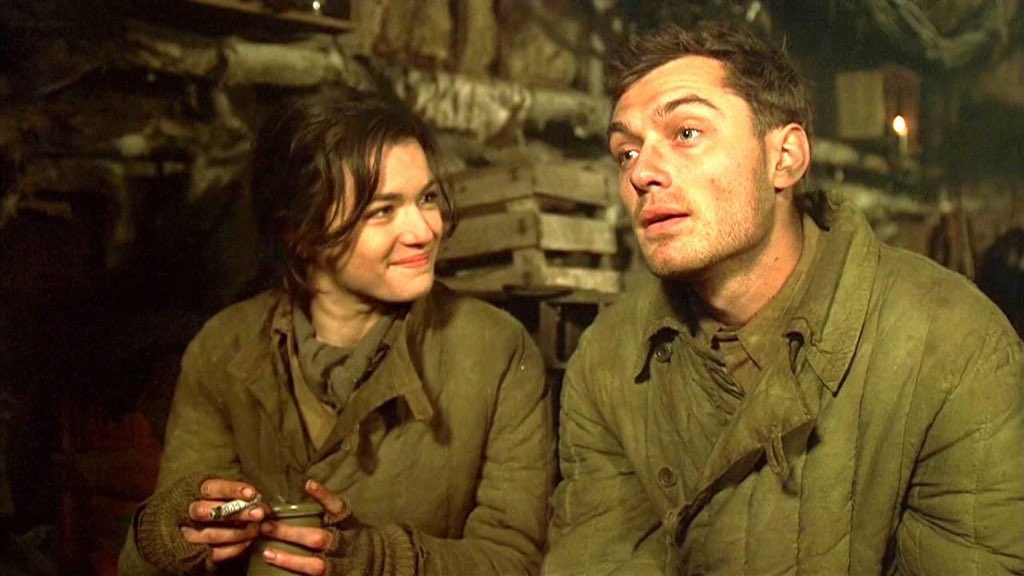8/10
A picture that's aged very well, director Jean-Jacques Annaud's lavish epic – one of his finest – tells the true story of a Russian sharpshooter (one of Jude Law’s best roles), popularized by military propaganda, whom the Germans decide to rub out by bringing in a vicious marksman (Ed Harris) while the Battle of Stalingrad rages on in the wintry Russian landscape of WWII.
Annaud's filmmaking is at its best here and the 2001 “Enemy at the Gates” is a well-mounted, thoroughly compelling picture that's a little erratic in its pacing and certain narrative decisions, but is striking in how it details the direct conflict between two individuals while thousands are dying in the battle surrounding them. The sniping sequences are tense and superbly crafted; the production design by Wolf Kroeger brings Stalingrad back to life with an impressive physical scale (the towering structures were built in Germany); and the movie's script by Annaud and Alain Godard successfully finds a human focus in the midst of war.
Not every component works, as the script seems a bit overstuffed: in particular, the character of a Russian writer (Joseph Fiennes) could've been jettisoned at little detriment to the overall dramatic structure. Watching it now, the top billing he shares with Law seems like a commercial concession to Fiennes' appearance in “Shakespeare in Love,” creating a needless romantic triangle where it doesn't belong. On the other hand, I found the love story itself much more effective this time around, with Rachel Weisz in one of her more appealing performances, playing a Jewish fighter who becomes attached to Law's Soviet folk hero. Their relationship – which includes one of the grimiest, most claustrophobic couplings in cinematic history – develops an effective, and welcome, emotional center opposite the chaos.
Annaud's movies, as I wrote in my review of “The Lover” a few days ago, are at their best when they bring to life a specific historical setting. “Enemy at the Gates” is no exception in terms of its authentic recreation of time and place, but what makes the film so effective is that the story mostly matches the director's visual attention to detail.
What's more, James Horner's superlative scoring enhances the entire picture – working with Annaud for the first time since “The Name of the Rose,” Horner doesn't try and over-emphasize the obvious nature of warfare, but is more focused, like Annaud, in the human dimension that's at stake. His scoring for Weisz's character and the poignancy of the final shot is beautifully handled by director and composer alike – remnants both of a style of moviemaking that sadly seems grounded in the past, and a picture that's better than many felt at the time of its original release.
